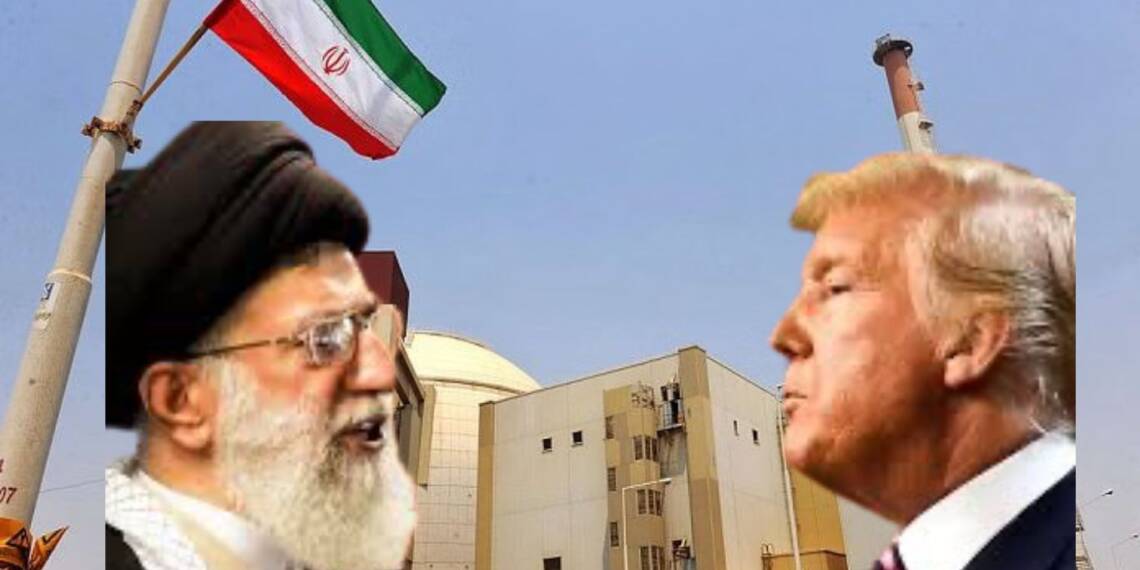Negotiators from the United States and Iran are set to meet on Friday in Rome for a fifth round of nuclear talks, hoping to find a breakthrough after months of deadlock and public disputes. The talks, ongoing since April, are the most significant direct contact between the two adversaries since the U.S. withdrew from the 2015 nuclear deal under President Donald Trump.
This latest round comes at a critical moment, as tensions rise and deadlines approach. The International Atomic Energy Agency (IAEA) is scheduled to review Iran’s nuclear activities in June, and the 2015 Joint Comprehensive Plan of Action (JCPOA) is set to expire in October.
Sticking Points: Uranium Enrichment
A major issue derailing progress is Iran’s uranium enrichment program. During the last round of talks in Muscat, Oman, the discussions ended in a sharp disagreement. U.S. envoy Steve Witkoff stated that Washington could not accept Iran enriching uranium — not even “one percent” — a stance that Tehran has called a red line.
Iran’s Foreign Minister Abbas Araghchi said ahead of Friday’s meeting that “fundamental differences” still exist. “We will not have an agreement at all” if the U.S. insists on zero enrichment, he warned. Iran claims that its rights under the Nuclear Non-Proliferation Treaty (NPT) allow peaceful nuclear development, including enrichment for civilian purposes.
Currently, Iran is enriching uranium to 60 percent purity — far above the 3.67 percent cap agreed in the 2015 deal, but still short of the 90 percent required for weapons-grade material.
Sanctions Relief vs. Security Concerns
Iran has made it clear it wants sanctions lifted as part of any new agreement. U.S. sanctions, particularly after Trump reimposed them in 2018, have caused large damage to the Iranian economy. Tehran is hoping for a deal that would restore economic relief in exchange for nuclear restrictions.
Meanwhile, the U.S. and its allies, especially Israel, remain skeptical of Iran’s intentions. They argue that any leeway could allow Iran to move closer to developing nuclear weapons — a claim Tehran strongly denies. The United States supports diplomacy but has not ruled out military action if talks fail.
Israel’s Role and Security Tensions
Iran’s conflict with Israel continues to overshadow negotiations. Tehran recently warned the United Nations that if Israel attacks its nuclear facilities, the U.S. would also be held legally responsible. The warning followed a CNN report suggesting Israel might be preparing a strike.
President Trump reportedly had a “productive discussion” with Israeli Prime Minister Benjamin Netanyahu on Thursday, covering Iran and the killing of two Israeli embassy staff in Washington.
Such developments make the negotiations more complicated, as any regional conflict could spiral out of control.
Europe’s Stand and the ‘Snapback’ Threat
European countries that signed the 2015 deal — the UK, France, and Germany — have expressed concern about Iran’s current nuclear activity. They’ve warned of triggering the JCPOA’s “snapback” mechanism, which would reinstate UN sanctions if Iran failed to meet its commitments.
Iran has responded with a warning of its own. Araghchi said activating the snapback would end Europe’s role in the agreement and escalate tensions to an “irreversible” level.
Diplomacy Is the Only Way Forward
While both sides remain firm on their positions, the stakes are too high for failure. A diplomatic solution is not only possible — it’s necessary. Preventing a nuclear Iran while avoiding war will require compromise, especially on enrichment levels and inspection protocols. Both Washington and Tehran must move beyond rigid demands and find common ground. History shows that pressure alone cannot yield peace. Only through trust-building and genuine negotiation can a stable agreement be achieved.
As negotiators sit down in Rome, the global and regional actors watch closely. The outcome will not only affect U.S.-Iran relations but could also determine the future of nuclear diplomacy and peace in the Middle East. With the clock ticking toward October, the urgency to strike a deal has never been higher.








